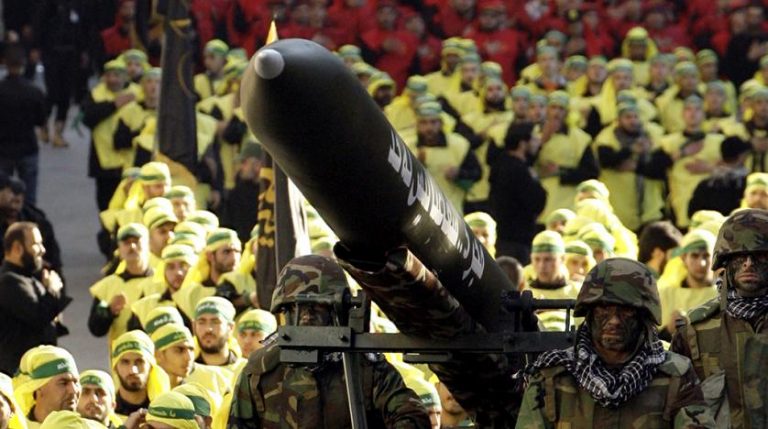Lebanese Shiite movement Hezbollah Sunday threatened to kill an Israeli soldier for every one of its fighters slain by its archfoe Israel, after a combatant was killed in Syria in July.
“The Israeli needs to understand: When you kill one of our fighters, we will kill one of your soldiers,” Hezbollah chief Hassan Nasrallah said in a televised speech.
Referring to several incidents at the border with Israel in recent weeks, he said: “All this has been taken into account and the time for settling accounts will come.”
He spoke after a July 20 Israeli missile attack on Syrian government and allied positions in Syria that killed five people. Damascus regime ally Hezbollah said one of its own was among the dead.
Nasrallah on Sunday said a “decisive decision” had been taken but that Hezbolah was “not in a hurry”.
Israel said Wednesday it had launched air strikes against Hezbolah observation posts in Lebanon after shots were fired from across the border.
The incident also comes after Hezbollah announced at the weekend it had brought down an Israeli drone flying over the border.
Israel has carried out dozens of air strikes on Hezbollah targets in neighbouring Syria where the group is fighting alongside the government of President Bashar al-Assad.
Hezbollah wields considerable political influence in Lebanon and its allies dominate the caretaker government.
Nasrallah spoke after the UN Security Council on Friday renewed its mission on the Lebanese-Israeli border, though officially reducing its numbers and pressing Beirut to grant access to tunnels under the border with Israel.
Israel has accused Hezbollah of building the tunnels to infiltrate its territory.
The 10,500-strong UNIFIL peacekeeping force, in coordination with the Lebanese army, is tasked guaranteeing a ceasefire and Israeli withdrawal from a demilitarised zone on the border.
AFP










